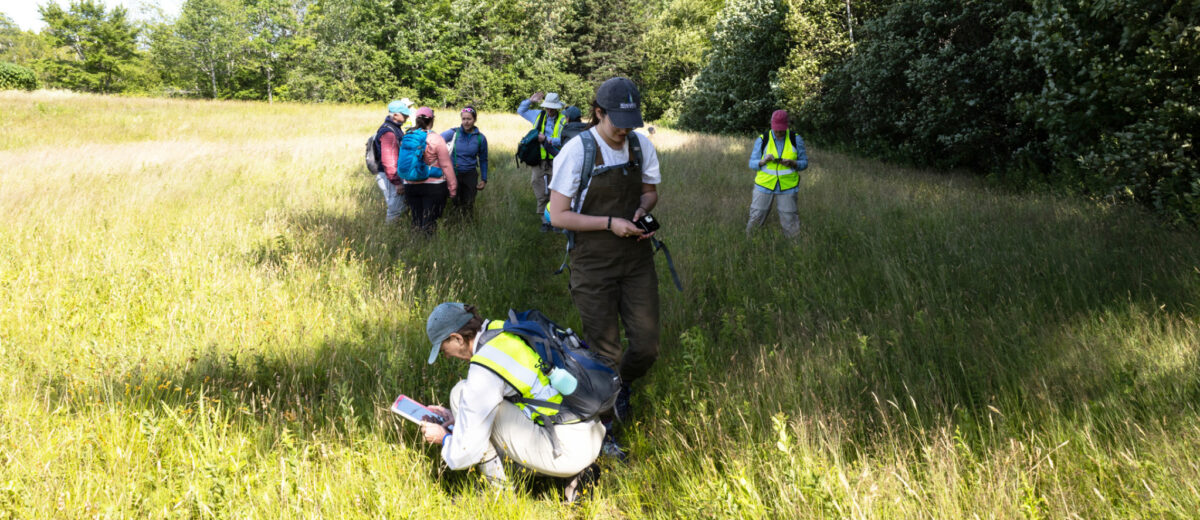Join our science
Science is for everyone and everyone can contribute to science. If we are going to address the urgent issues facing parks, people, and the planet, we need everyone to participate in research, including you.
We work with the National Park Service and other partners to provide opportunities for volunteers of all ages to connect with science, from “citizen science” activities that involve non-scientists in different aspects of research, to “community science” projects that engage researchers in addressing local issues of concern. Below are some ongoing projects with opportunities for participation.
Project ASCO: Help us answer the question – ”How much rockweed is there?”
Backyard Scientists: In partnership with Friends of Acadia, Mount Desert Island residents monitor plants in their yards to inform management of invasive species in the park.
Save Our Summits: Carry soil to the top of Sargent and Penobscot mountains, where we are working with Friends of Acadia to learn how best to restore summit plant communities.
Biodiversity monitoring: Help us understand our changing world, and how we are responding to change.
Bird programs: We welcome public participation in multiple bird-related programs, such as Cadillac Mountain Hawk Watch.
Sea level monitoring: Volunteers are needed to contribute observations of high tides and storm impacts.
Earthwatch Expeditions: Volunteers in these week-long expeditions study changing flora and fauna of Acadia.
The Dragonfly Mercury Project: Park staff and citizen scientists collect dragonfly larvae in lakes, streams, and wetlands, providing information on mercury pollution in more than 100 national parks. The Dragonfly Mercury Project emerged from Schoodic Institute’s Acadia Learning program, initiated in 2007, which brought 110 teachers, 3,000 students, and working scientists together to investigate environmental concerns in Acadia National Park.
Other volunteer opportunities: Serve as campus host, meet thousands of guests in our Welcome Center, and assist with projects to enhance and improve our campus and our science.
Learn more about developing effective participatory science programs.
